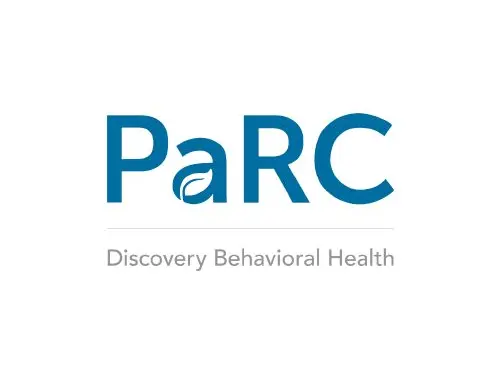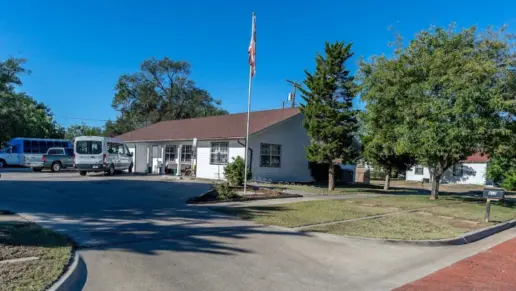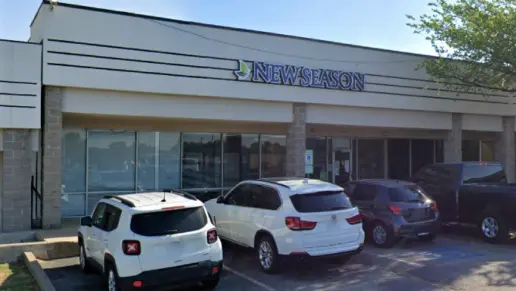About PaRC – The Woodlands Intensive Outpatient Program
PaRC The Woodlands Intensive Outpatient Program is a 12 step-focused drug and alcohol rehab for adolescents and adults in Spring, Texas. They offer intensive outpatient (IOP), general outpatient (OP), and aftercare programming, including dedicated services for young adults and clients with co-occurring addiction and mental illness. They are Joint Commission accredited.
Clients in outpatient care receive medical and mental health assessments, personalized treatment planning, and case management. Referrals for acute and subacute inpatient care are available as needed.
Their intensive outpatient (IOP) program is designed for clients requiring high-level supervision and support, including those in early recovery and those stepping down from inpatient care. Clients engage in robust, trauma-informed individual, group, and family counseling and recovery-focused life skills training addressing topics such as coping, self-care, wellness, and relapse prevention. Clients typically remain in IOP treatment for five-to-six weeks before stepping down to lower-intensity care.
Their general outpatient (OP) and aftercare services ensure a complete continuum of care aligned with clients’ evolving needs and may include 12 step program facilitation, peer coaching, and referrals for additional services.
PaRC The Woodlands Intensive Outpatient Program contracts with many major insurance providers, including Aetna, BlueCross BlueShield of Texas, Cigna, Humana, Magellan, Optum, Value Options, ComPsych, and others. Out of network benefits vary. Contact your provider to verify coverage.
Rehab Score
Location
Location
Accepted Insurance
Other Forms of Payment
Self-pay involves paying for treatment out of your own pocket. You can use savings or credit, get a personal loan, or receive help from family and friends to fund your treatment. If you don't have insurance or your insurance plan doesn't cover a specific program, self-pay can help ensure you still get the care you need.
Private insurance refers to any kind of healthcare coverage that isn't from the state or federal government. This includes individual and family plans offered by an employer or purchased from the Insurance Marketplace. Every plan will have different requirements and out of pocket costs so be sure to get the full details before you start treatment.
Addiction Treatments
Levels of Care
Treatments
The goal of treatment for alcoholism is abstinence. Those with poor social support, poor motivation, or psychiatric disorders tend to relapse within a few years of treatment. For these people, success is measured by longer periods of abstinence, reduced use of alcohol, better health, and improved social functioning. Recovery and Maintenance are usually based on 12 step programs and AA meetings.
During rehab in Texas, you'll deal with underlying issues that contribute to addiction. By addressing these challenges and learning healthy ways to cope with them, you'll develop strategies that help you live a drug-free lifestyle.
Opioid rehabs specialize in supporting those recovering from opioid addiction. They treat those suffering from addiction to illegal opioids like heroin, as well as prescription drugs like oxycodone. These centers typically combine both physical as well as mental and emotional support to help stop addiction. Physical support often includes medical detox and subsequent medical support (including medication), and mental support includes in-depth therapy to address the underlying causes of addiction.
Substance rehabs focus on helping individuals recover from substance abuse, including alcohol and drug addiction (both illegal and prescription drugs). They often include the opportunity to engage in both individual as well as group therapy.
Programs


Clinical Services
Research clearly demonstrates that recovery is far more successful and sustainable when loved ones like family members participate in rehab and substance abuse treatment. Genetic factors may be at play when it comes to drug and alcohol addiction, as well as mental health issues. Family dynamics often play a critical role in addiction triggers, and if properly educated, family members can be a strong source of support when it comes to rehabilitation.
Group therapy is any therapeutic work that happens in a group (not one-on-one). There are a number of different group therapy modalities, including support groups, experiential therapy, psycho-education, and more. Group therapy involves treatment as well as processing interaction between group members.
In individual therapy, a patient meets one-on-one with a trained psychologist or counselor. Therapy is a pivotal part of effective substance abuse treatment, as it often covers root causes of addiction, including challenges faced by the patient in their social, family, and work/school life.
Amenities
-
Private Setting
Accreditations

LegitScript has reviewed PaRC – The Woodlands Intensive Outpatient Program as part of their certification program, and has determined that it meets the LegitScript standards for legality, safety and transparency.
LegitScript verified in September 2021
Contact Information
1733 Woodstead Court, Suite 102
Spring, TX 77380










